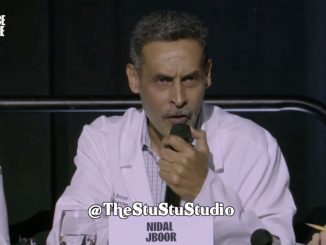
| Published June 28, 2025
In a rare and startling reversal of Iran’s tightly controlled messaging, Foreign Minister Abbas Araghchi has directly contradicted Supreme Leader Ayatollah Ali Khamenei on the impact of recent U.S.–Israeli strikes on Iran’s nuclear facilities. His admission signals a major internal rift and may signal shifting power dynamics within the theocracy.
🧨 A Bombshell Statement
In televised remarks this week, Araghchi—typically a cautious diplomat—asserted that the U.S.-led campaign, dubbed Operation Midnight Hammer, caused “high” and “serious” damage to Iran’s nuclear sites. This stands in sharp contrast to Khamenei’s official position that the strikes accomplished “nothing important.” Araghchi insisted:
“The level of damage is high, and it’s serious damage.”
Multiple credible sources, including the IAEA, U.S., and Israeli analyses, support Araghchi’s assessment , making the foreign minister’s statement both bold and grounded in fact.
⚖️ What This Contradiction Reveals
1. An Unprecedented Internal Split
Khamenei’s message was carefully calibrated: Iran had weathered the attack, and retaliation remained the path forward. Araghchi’s dissent signals open disagreement within the ruling elite—a rarity in a system where unity is paramount.
2. Undermining Propaganda
By challenging the Supreme Leader’s claim of minimal damage, Araghchi risks political backlash. In a regime where dissent can be deadly, his willingness to speak out suggests concerns within the leadership over Iran’s strategic posture.
3. Diplomatic Leverage
Acknowledging the extent of damage may be part of a tactical pivot—Araghchi hints at negotiation openness, stating damage complicates diplomacy but doesn’t rule it out . This nuance aligns with moderates keen to resume talks under stress.
🌍 Flashpoint Fallout
• Diplomatic Dilemmas
With Araghchi’s candor, the Iranian government implicitly admits vulnerability. This may prompt the U.S., under Trump’s renewed pressure, to press for inspections or new restrictions.
• IAEA Access
Just days after the strikes, Iran signaled it might block UN inspections, with Araghchi voicing strong objections to IAEA intervention. The contradiction between acknowledging damage and denying inspections raises international alarm.
• Domestic Tensions
Hardliners may view Araghchi’s statements as weakness or betrayal. This could provoke a power struggle inside Tehran as factions debate Iran’s next moves.
 Resulting Effects
Resulting Effects
🔥 1. Deepening Internal Divisions
-
Araghchi’s statement publicly undermines the Supreme Leader’s authority, a near-unthinkable act in Iran’s tightly controlled regime.
-
This opens the door to power struggles between moderates and hardliners, especially amid public discontent and elite frustration.
🌍 2. Shifts in Iran’s Diplomatic Posture
-
His admission may signal readiness for negotiations—a softer tone contrasting Khamenei’s usual defiance.
-
This gives Western diplomats an opening to push for renewed nuclear talks, possibly under new terms.
🚫 3. Potential Crackdown on Dissent
-
Araghchi risks political exile, demotion, or worse. Iran’s Revolutionary Guard could use this as justification to tighten control over the foreign ministry and any perceived “moderate” voices.
☢️ 4. International Credibility Shift
-
The foreign minister’s candor reinforces U.S. and Israeli claims that Operation Midnight Hammer seriously crippled Iran’s nuclear program.
-
It may increase pressure on the IAEA to demand urgent re-inspections or even new sanctions.
📉 5. Khamenei’s Diminished Grip
-
Khamenei’s insistence that the strikes caused “nothing important” is now publicly discredited—even from within.
-
This could undermine his credibility domestically and among Iran’s proxy groups, potentially weakening the regime’s regional posture.
🛑 6. Complications for Iran’s Propaganda Machinery
-
State media must now choose: align with Araghchi’s version and risk angering hardliners, or continue pushing a narrative already contradicted by international intelligence.
 Bottom Line:
Bottom Line:
In the wake of Operation Midnight Hammer, Iran’s own foreign minister has been forced to admit what Ayatollah Khamenei tried to hide: Trump’s pressure worked. The regime is shaken. Its nuclear program is damaged. And its leaders are now contradicting each other in public—a sign of disarray we never saw under weak diplomacy.
While others relied on empty deals, President Trump chose strength, precision, and consequences. Now, even Iran’s top officials can’t deny the impact. It’s proof that peace through strength isn’t just a slogan—it’s a strategy that gets results.





Be the first to comment